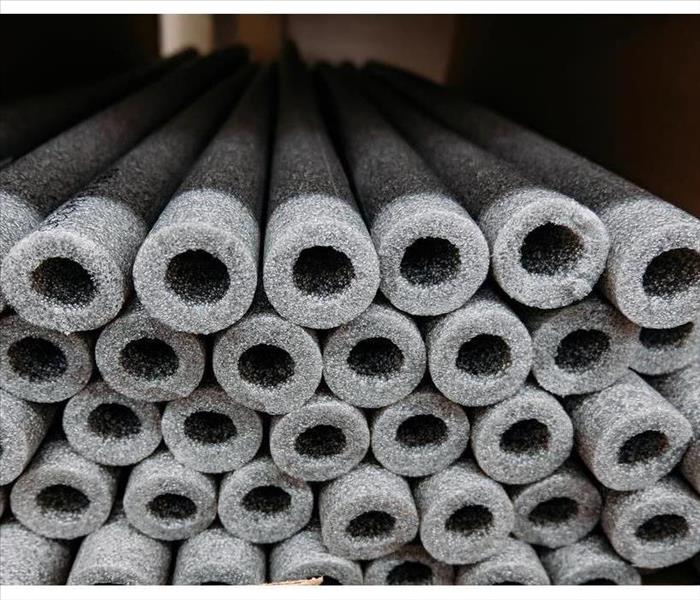What Happens When Pipes Freeze?
12/6/2021 (Permalink)
Freezing temperatures can lead to broken pipes. Find out why pipes freeze and how to prevent water damage at a commercial building in Kennesaw, GA.
Causes of Frozen Pipes
Pipes with insufficient insulation may freeze when exposed to cold weather. This is most common with pipes that are:
- Against exterior walls
- Exposed to below-freezing temperatures
- In unheated areas
Water expands as it freezes and puts pressure on pipes. As the pressure increases, so does the risk that pipes will break and cause water damage.
How To Protect Exposed Pipes
It is a good idea to add insulation to pipes that are at risk of freezing. A building owner or facility manager may use:
- Heat tape or cable
- Pipe sleeves
- Newspaper
Newspaper is only recommended for emergency protection in regions that rarely experience freezing temperatures. Wrap at least a quarter-inch of paper around a pipe to provide some insulation.
How To Prevent Pipes From Freezing
A property owner or facilities manager can take other preventative measures inside a building. These include:
- Allowing water to drip from faucets served by exposed pipes
- Maintaining the same interior temperature day and night
- Heating a building that will be unoccupied for several days to at least 55 degrees Fahrenheit
These methods can reduce the likelihood that pipes will freeze. If a pipe freezes, keep the affected faucet turned on and use a heating pad, hair dryer, or space heater near the blockage. If the frozen portion of a pipe is not accessible, contact a plumber.
Pipes that freeze will experience a significant increase in pressure. Broken pipes and water damage may result. In the event of a pipe burst, contact a plumber. If the damage is severe, a building owner or manager should arrange for water cleanup and damage restoration. Take steps to insulate pipes and other preventative measures before temperatures dip below freezing in Kennesaw, GA.






 24/7 Emergency Service
24/7 Emergency Service
